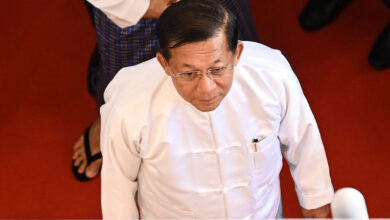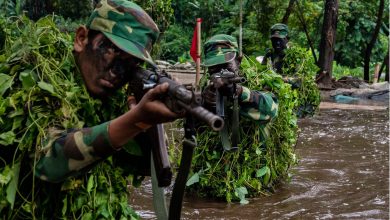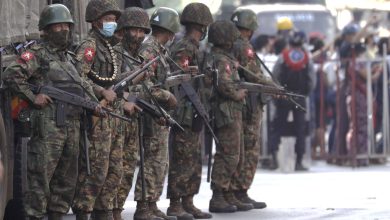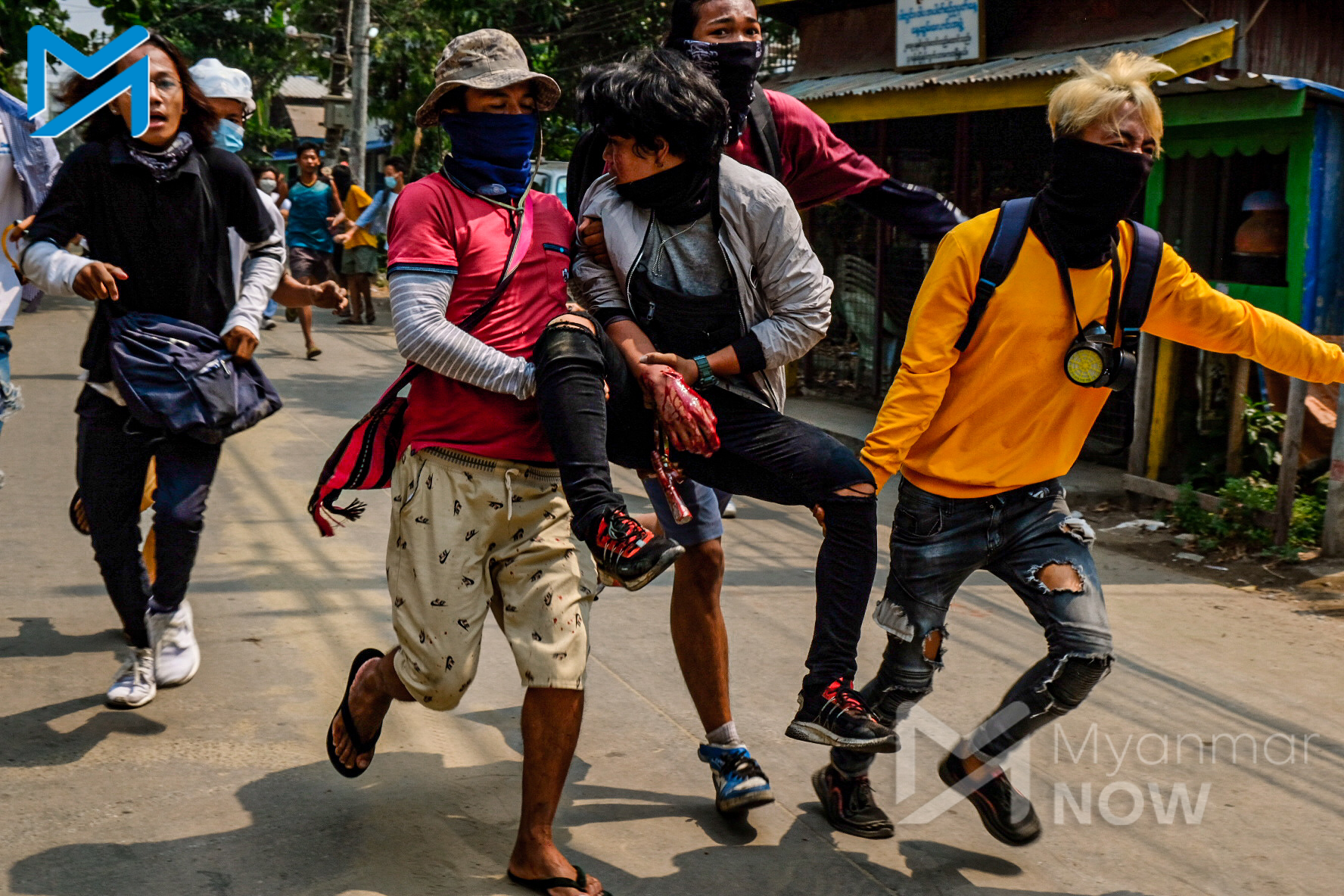
I am often asked by foreign friends what the international community can do to help Myanmar. I know that most ask with the best of intentions, but I still find the question a little troubling. To my mind, it reveals that most are unaware of the fact that the problem is not so much a lack of “help” from their countries, but the actual involvement of those countries in reinforcing the institutional and economic power of Myanmar’s military.
Both the West and Myanmar’s Asian neighbours have promised to support the democratic aspirations of its people and punish the military for its violence (although the latter camp has always gone to greater lengths to avoid upsetting the generals). In practical terms, however, neither of these two groups of nations has been very effective in living up to their promises. And the United Nations, for its part, has been even less helpful. It has already begun normalising its relationship with the junta that seized power two years ago by engaging with the generals through its Myanmar country teams and regional offices, all in the name of providing humanitarian support and civilian protection.
There are some seasoned observers who recognise that Myanmar’s perpetual political crisis is structural in nature, and not something that can be solved with promises of aid and other forms of support. However, even they miss the point when they frame the problem as one of failed nation-building. What they typically leave out of their assessment of the country’s condition is something that pervades its deeply corrupt political structures, and at the same time extends far beyond its borders—namely, capitalism.
To borrow a term from political scientists Paul Chambers and Napisa Waitoolkiat, Myanmar’s generals can best be understood as “khaki capitalist” elites who have monopolized the country’s economy and accumulated both enormous private wealth and institutional power. However, as capitalism is an international system, they would not have been able to do this without the collusion of the outside world.
As a source of cheap labour, land, and natural resources essential to the global supply chain, Myanmar is immensely attractive to international investors. But to access these resources, foreign corporations need the cooperation of Myanmar’s highly centralised—and military-controlled—state.
To justify this control, and to extend it into resource-rich territories, the military routinely deploys the language of nation-building, declaring itself to be the defender of the nation’s borders and sovereignty. If locals resist, they are designated as insurgents who must be crushed. But the military doesn’t just target political forces or armed groups; it also aims to suppress existing forms of local governance, established economic arrangements, and long-standing socio-cultural rights.
This process is not limited to outright armed conflict. As part of its counterinsurgency operations, the military will also try to “win the hearts and minds” of affected civilians by building roads, bridges and other infrastructure, ostensibly to improve their lives. But such “development” also serves another purpose: to facilitate the transfer of local wealth out of the region and into the hands of high-ranking military officials, their families and cronies, and their international partners.
The military’s approach to nation-building also serves global capitalism in other ways. By displacing a significant segment of the local population, it frees up land for investment. And those forced off that land often end up in foreign countries as low-paid migrant labour. Thailand alone has millions of Myanmar citizens in its workforce. Even those who are well-educated but not necessarily well-connected must also seek employment abroad, working in Singapore as engineers or IT technicians.
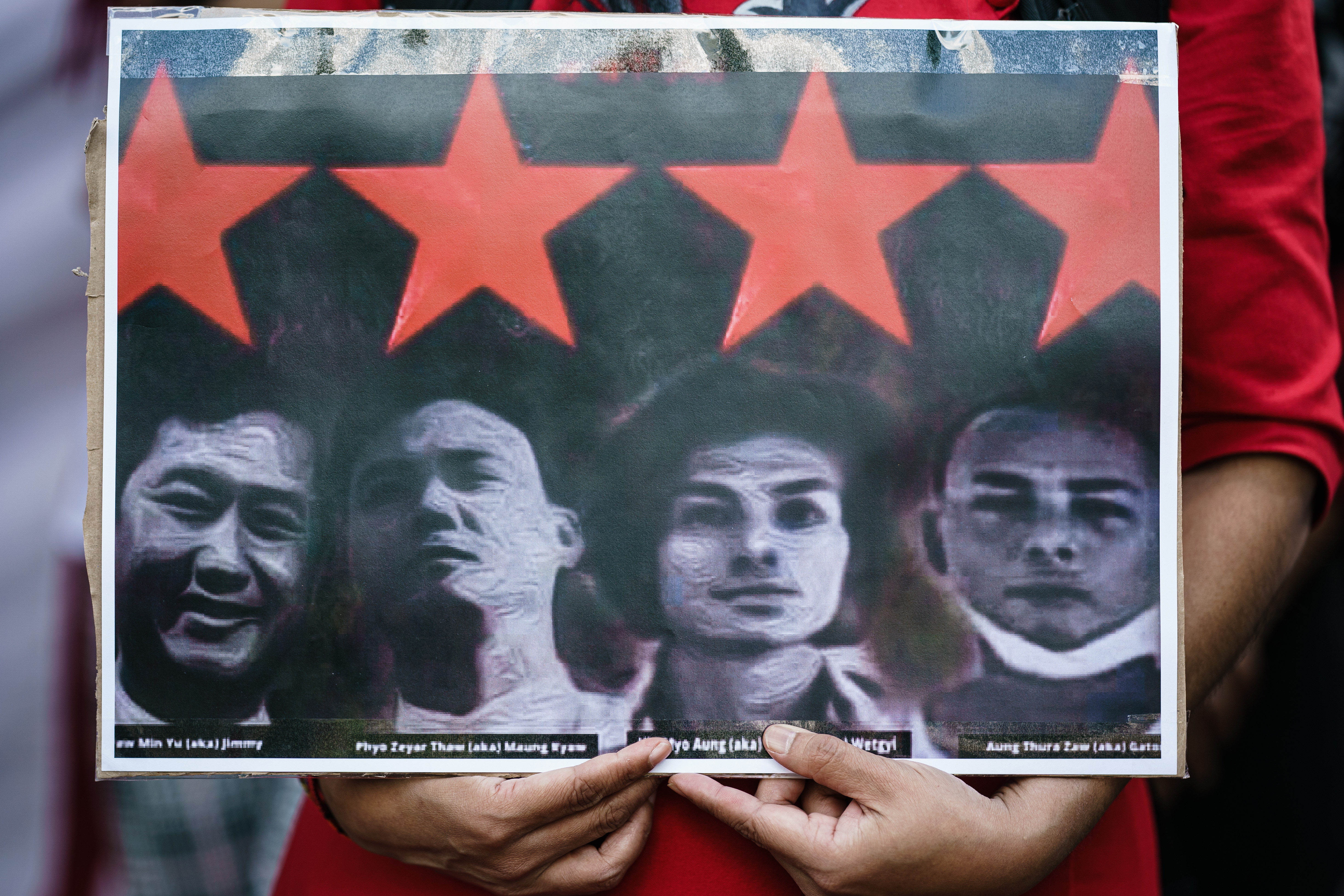
Pseudo-democratic delusions
The beneficiaries of this system are those who own, invest, manage and protect the capital that it generates—that is, the transnational class of politicians, bureaucrats, security agents, investors, financiers, managers and so on who collectively run the system at the national, regional, and global level.
Looking at the international community’s role in Myanmar from the perspective of this transnational class, there is no real divide between East and West. Indeed, to use a Burmese idiom, they are like cork and bottle—two parts of the same whole. While the Western democracies are supposedly more inclined to support Myanmar’s democratic forces than its neighbours, who are seen as leaning more towards the generals, both sides are in practice working hand in hand with the khaki capitalists inside the country.
This does not mean that Western governments and corporations have any moral sympathy for Myanmar’s military, which they often, and rightly, condemn as utterly ruthless and brutal. But at the same time, they do see the advantage of dealing with an institution that can act violently in the service of the global capitalist class. The fact that Myanmar has always received the bare minimum from the West to help it achieve genuine democracy is perhaps a reflection of this reality.
This was especially evident during the decade-long period of pseudo-democratic rule under the administrations of President Thein Sein and State Counsellor Aung San Suu Kyi. Activists urged foreign governments and international investors not to do business with the military, noting that it had shown no signs of ending its repressive ways. But such calls went unheeded, or were even dismissed as misguided and irrational.
And so billions flowed into the country, much of it straight into the coffers of military-owned conglomerates. The families and associates of top generals also made out like bandits, further entrenching their status as Myanmar’s ruling elite. But investors had no qualms about this, as they knowingly propped up the heirs of ill-gotten fortunes and ensured their continued domination of the country’s economy.
At the same time, arms suppliers—not just from China, Russia and India, but also from Ukraine, Germany, France, Israel, the Netherlands, and South Korea, among others—wasted no time signing contracts with a military that had for decades shown no compunction about using its might against unarmed civilians.
Japan and the EU also took part in this pretence of treating Myanmar’s military as if it were something other than a killing machine wholly under the control of the country’s khaki capitalists by providing it with “capacity-building” training. This same military also received invitations to regional security cooperation forums and joint military exercises, even as it ramped up its genocidal campaigns against the Rohingya and other minorities.
Meanwhile, civil society organizations working on human rights, accountability and transitional justice issues were increasingly sidelined, as donors reduced or suspended their support for groups engaged in such “controversial” activities. What some appeared to fear was that such support could jeopardize their relations with the military, which was naively (or perhaps cynically) portrayed as an institution susceptible to reform.
Time for a post-coup pivot?
The coup and its aftermath have, of course, made it difficult to maintain these self-serving illusions. But now that two years have passed, UN teams and Western diplomats have begun to rebuild relations with the military—not, they say, to lend legitimacy to the coup regime, but to coordinate humanitarian aid.
The international community has clearly made a calculation that the military-backed party will win elections expected to be staged later this year. In fact, the military plans to be the perennial winner from now on. This means that it only makes sense to normalise relations sooner rather than later. It also explains why cross-border aid and more tangible support for democratic actors in Myanmar have not been forthcoming.
Seen in this light, sanctions imposed on the regime by the United States and its allies, such as those included in the so-called BURMA Act (actually just a series of amendments to the latest iteration of the National Defense Authorization Act), aim not so much to punish the military as to set parameters within which it can operate in the service of transnational capital.
The point is that Myanmar remains under a dictatorship not just because of the failure of domestic forces to remove it from power, but because of international forces that continue to reinforce its grip. The role of the international community has been to keep Myanmar’s military elites confident, their economic power strong, and their machine of mass brutality fierce.
For this reason, it is not so much a question of what other countries can do to assist Myanmar’s democratic forces as what they can do to stop helping the military stay in power.
Historically, most groups resisting the military’s hegemony, including both the Bamar political opposition and ethnic organisations, have looked more to the West than to Myanmar’s neighbours for support. In some ways, this has been a strategic mistake. It has allowed other governments in the region to regard the regime’s opponents as Western proxies, even as they do very little themselves to assist efforts to establish a less immiserating political order in Myanmar.
It goes without saying that no country will help Myanmar purely out of sympathy and benevolence. All act in accordance with their elite interests and regional and global ambitions. It therefore follows that the countries with the strongest economic and security interests in Myanmar will have the greatest influence on its political evolution. And so it is critical for Myanmar’s opposition forces to build relations with these countries, including China, India and Thailand.
This means formulating diplomatic strategies that reflect other countries’ domestic and foreign policy concerns in the global context, as well as the inner workings of their elite circles and bureaucracies, and not expecting wholesale support for democracy. What it doesn’t mean is leaving the Western orbit altogether. Indeed, since East and West are inextricably bound up in the same capitalist system, this is arguably not even possible.
However, if Myanmar’s federal and democratic forces are to succeed in breaking the military’s hold on power, they will have to rely less on the rhetoric of shared political values and more on our ability to recognise the ways that even those we consider to be our friends are acting against our best interests.
Dr. Sai Latt studied International Development, Human Geography and Asian Studies at York University in Canada. He received his Ph.D from Simon Fraser University. His research includes armed conflicts, development and violence.
The views expressed in this article are those of the author and do not necessarily reflect Myanmar Now’s editorial stance.
